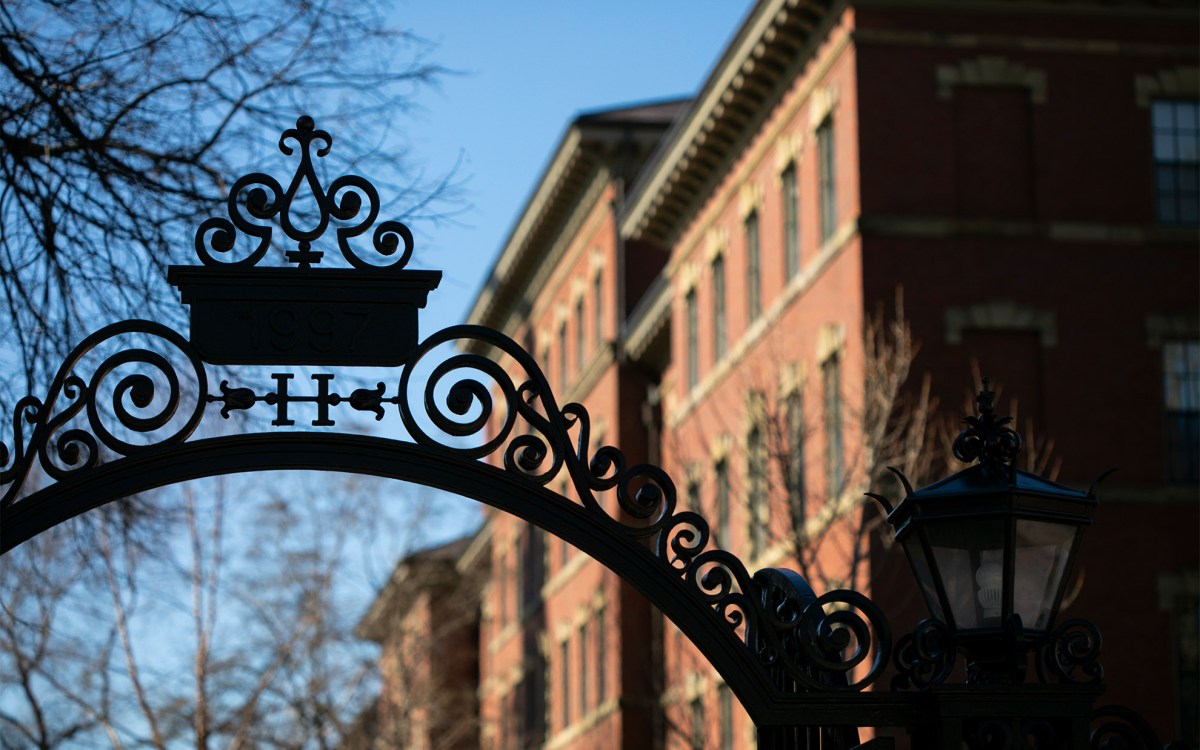Mr. Smith goes to Washington:
Junior testifies before Congress on Social Security reform

Harvard junior Brad Smith added the voice of his generation to the debate over Social Security reform this past summer, appearing before the U.S. Senate’s Special Committee on Aging to ask lawmakers to reform the system now to avoid substantial benefit cuts later.
Smith, an economics and government concentrator, became one of the youngest people to testify before the committee on the issue so far. Smith’s testimony came shortly after General Accounting Office Comptroller David Walker told the committee that a recent analysis shows that if no changes are made to the system, Smith’s generation will receive just 75 percent of the benefits that current retirees get.
In his statement, given July 29, Smith outlined the problem that will be facing his generation should Congress not approve reforms.
“This means that my generation of Americans will not have the social insurance we have been promised,” Smith said. “This means that millions of retirees in my generation will fall below the poverty line. And this means that my generation will receive less in benefits than we paid in taxes, never mind seeing a return on our investment.”
Smith, a member of the Institute of Politics’ Student Advisory Committee, has been working on the Social Security problem since his freshman year, when he co-founded a student group called Social Good Through Politics.
The organization, formed under the auspices of the Institute of Politics, has developed a five-point plan to reform Social Security by investing a portion of the FICA tax, redistributing wealth from the investment earnings to lower income brackets, and ensuring retirees receive 100 percent of their promised benefits.
Smith said the group selected the issue because it’s an important one that he believes many in his generation aren’t focusing on, even though changes now can prevent problems later on.
“I think it’s an issue my generation needs to worry about now,” Smith said.
Institute of Politics Director Dan Glickman said he was impressed with Smith’s work on the issue and thought it would have an influence on the legislative process.
“Brad’s engagement on the issue shows that younger Americans can have a key role in deciding long-term pension policy,” Glickman said.
Smith said he was invited to Washington to testify by a senior policy analyst for the committee’s chairman, Sen. Larry Craig. Smith said he and other members of Social Good Through Politics had been in Washington prior to his testimony working on their plan, running models at the Heritage Foundation, and talking to lawmakers.
Smith didn’t present the group’s plan to the Special Committee on Aging in his testimony because he felt a general call for reform has to be heard first.
“One of the things our group wants to do is, initially, advocate general change,” Smith said. “Then, when it becomes an issue, we can say we have a way.”
In his testimony, Smith pointed out that the cost of fixing the system increases as time goes on.
“Every day you delay, the cost of fixing the problem increases,” Smith said. “Yes, it’s better to undertake reform in an economic boom than during and economic recovery. Yes, it’s better to undertake reform when there’s a budget surplus rather than when there is a deficit. But, as any investor will tell you, it’s better to start investing today than it is to start investing tomorrow.”
The GAO report on Social Security’s future shows that the system will be solvent until 2042, though Social Security tax income alone will be insufficient to pay benefits by 2018. After 2018, Social Security surpluses from prior years will be needed to pay benefits, until the money runs out in 2042.
After that, unless the system is reformed, benefits will have to be cut to match tax income, resulting in benefits dropping to the equivalent of about 75 percent of today’s benefits.”My generation needs you to be bold and commit yourselves to developing, publicizing, and passing a bipartisan reform plan. It will be difficult, and perhaps even controversial, but in the end I can guarantee you that it will be worthwhile,” Smith said in his testimony. “My generation will thank you and your generation will leave a great legacy behind.”




